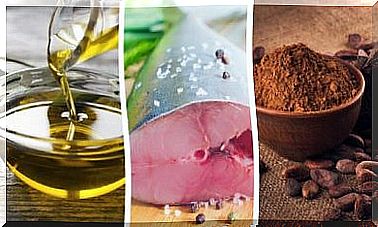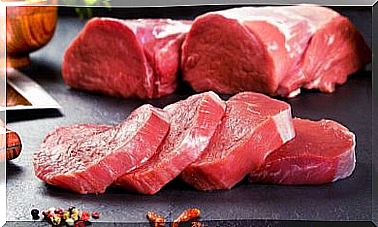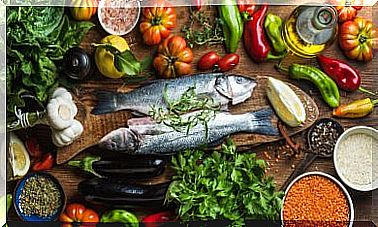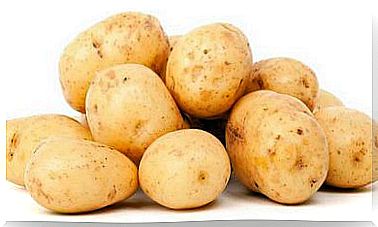7 Myths About Diet And Arthritis
In this article we explain what these myths about diet and arthritis are, as well as other natural remedies that have been proven.
Is it true that some foods such as vinegar, raisins or red wine significantly improve the symptoms of this disease? Is it true that some foods such as nightshades or dairy can, on the other hand, harm us? In this space we share the answers to these questions.
Why does arthritis hurt?
The pain that is felt arises as a result of the inflammation and stiffness caused by the two bones when rubbing against each other due to the gradual wear of the cartilage. When cartilage is normal, its function is to protect the joint, allow smooth movement, and cushion the pressure and impacts caused by movement.
In addition to pain and inflammation, arthritis also limits the ability to move and, in some cases, can even lead to redness of the skin.

Why do myths about diet and arthritis arise?
Arthritis is a disease that can be, in some cases, very painful. It can force those who suffer from it to have to resort to strong medication. The fact that medical treatments are not always effective, or because of their side effects, has caused many people to look for other alternatives.
The Arthritis Foundation has explained what are the most common myths in reference to some foods to combat this disease. No rigorous study has shown the results that are attributed to the following natural remedies.
Unproven myths about diet and arthritis
- A dozen raisins soaked in gin provide daily relief.
- Apple cider vinegar relieves pain.
- Consuming dairy products worsens arthritis symptoms.
- Solanaceae (tomato, potato, eggplant and pepper) aggravate this disease.
- Raw diets, which are based on the consumption of raw foods, improve the state of this ailment.
- Moderate consumption of red wine, thanks to its resveratrol content, controls arthritis.
- Consuming citrus fruits can aggravate this disease.
Foods that do work
The same foundation lists the foods that have been scientifically proven to be positive on arthritis:
- Avocado: relieves osteoarthritis and slows its progress.
- Cold water fish oil, such as cod, mackerel or tuna: it is rich in omega-3 fatty acids, which help reduce inflammation in the joints.
- Green tea : very rich in antioxidants and anti-inflammatory principles.
- Turmeric: excellent anti-inflammatory and analgesic spice, which will reduce swelling and relieve pain.
- Ginger: In a similar way to turmeric, ginger is also very effective in fighting arthritis.
- Olive oil : this oil is very beneficial for the body in general and for arthritis in particular.
- Flax seeds and oil : rich in omega-3 fatty acids and glucosamine.
- Chilli or chili pepper : this type of spice has shown in several studies that, due to its capsaicin content, it can help us relieve pain if we apply it externally, directly on the skin of the affected area.
- Cat’s claw : this medicinal plant, also known as devil’s claw, is one of the most effective for treating arthritis.
- Green nettle : it is very cleansing and helps fight the symptoms of this ailment.
It is essential to always consult with a doctor or therapist before using a natural remedy, especially if you are taking medication.
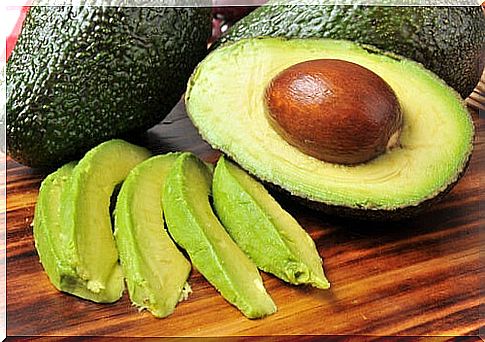
Beneficial vitamins
We can complete the benefits of a diet that includes these foods with the following natural vitamin supplements:
- Vitamin A : antioxidant and tissue protector.
- Vitamin C : helps make collagen and connective tissue.
- Vitamin B1 or thiamine : converts sugars into energy.
- Vitamin B2 or riboflavin : promotes the creation of new cells.
- Vitamin B3 or niacin : improves the body’s energy capacity.
- Vitamin B6 : improves the synthesis of amino acids, erythrocytes and antibodies.
- Vitamin D : promotes the absorption of calcium and its deficiency can cause bone and muscle weakness.
We can obtain these vitamins through food, or we can use some supplements adapted to our particular case in a timely manner. We should never self-medicate on our own, we must always go to a professional.





